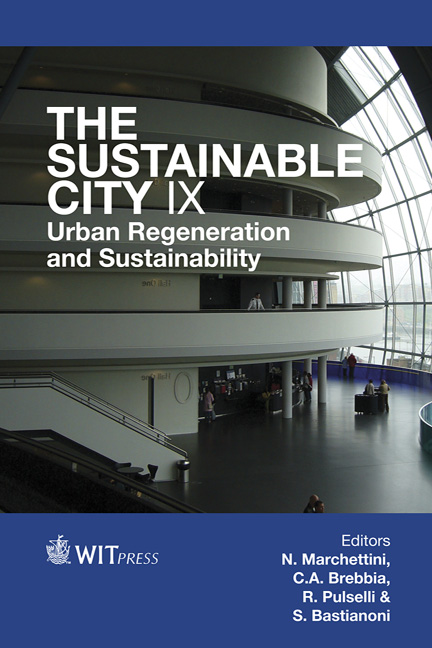A New Infrastructural-relation Model For The Post-earthquake City Of L ’Aquila
Price
Free (open access)
Transaction
Volume
191
Pages
12
Page Range
221 - 232
Published
2014
Size
583 kb
Paper DOI
10.2495/SC140191
Copyright
WIT Press
Author(s)
B. De Vico, D. Di Ludovico, S. Colagrande
Abstract
Today, when the social model that produced contemporary cities is highly challenged, city models need to be revised, together with the “urban and territorial frame,” especially the infrastructural model. The new city model asks for an updated infrastructural, relational and settlement system. Theories about urban regeneration and sustainability, are pointing in this direction. This research aims to find a new role for the infrastructural-relational system, in the context of an innovative idea of the city as well as the society living within it. Fields of interest are: analysis of spatial configurations, new approaches to city re-planning, a new conception of urban infrastructures, and the possible role of infrastructures in a stage of conceptual change, like that of European cities. The main aim is to define a specific way to redesign the infrastructural-relational system inside the contemporary idea of a city, and to redefine urban system planning, basing it on the main project of its own frame. This is possible by applying innovative tools, which care about risks that affect the city, current social changes, and transformational tendencies aimed at preservation. In this context, the city of L’Aquila, Italy is a highly effective example: after the 2009 earthquake which ravaged this city, there have been a series of fast transformations as a result of the urgency of facing this emergency. Instead of continuing with haphazardly chosen solutions, there is great potential for a city like L’Aquila to be the central focus of a conscious re-planning, according to innovative structural models, which respond to the needs of contemporary society.
Keywords
infrastructural system, new city model, re-planning, regeneration, sustainability, earthquake, urban framework





